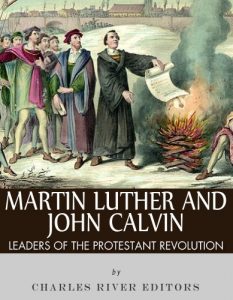*Includes pictures
*Includes excerpts of accounts of the fighting by soldiers
*Includes online resources and a bibliography for further reading
*Includes a table of contents
“When elephants fight, ants should stand aside.” - Norodom Sihanouk, King of Cambodia, on the Vietnam War
The Vietnam War could have been called a comedy of errors if the consequences weren’t so deadly and tragic. In 1951, while war was raging in Korea, the United States began signing defense pacts with nations in the Pacific, intending to create alliances that would contain the spread of Communism. As the Korean War was winding down, America joined the Southeast Asia Treaty Organization, pledging to defend several nations in the region from Communist aggression. One of those nations was South Vietnam.
By the end of 1967, with nearly half a million troops deployed, more than 19,000 deaths, and a war that cost $2 billion a month and seemed to grow bloodier by the day, the Johnson administration faced an increasingly impatient and skeptical nation. Early in 1968, a massive coordinated Viet Cong operation - the Tet Offensive - briefly paralyzed American and South Vietnamese forces across the country, threatening even the American embassy compound in Saigon. With this, the smiling mask slipped even further, inflaming the burgeoning antiwar movement.
As the results of the Tet Offensive made clear, American forces were hamstrung by political constraints and a wide range of self-imposed limitations, and the United States struggled to deal with the greater strategic nimbleness of the North Vietnamese during the late 1960s. The tremendous power of the American military, blending technological strength and professional skill, gave the Americans the advantage in many, though of course not all, tactical encounters. On the strategic and operational level, however, the North Vietnamese held many of the trump cards. Constrained by a heavily defensive strategy, the U.S. found itself mostly forced to respond to the North’s initiatives, and a reactive strategy placed even an extremely potent combatant at a severe disadvantage.
The NVA and Viet Cong used this favorable situation to create numerous bases just across the Cambodian border from South Vietnam, enabling them to launch attacks and then retreat to their “neutral” refuge where the U.S. usually refused to authorize its troops to follow them. As U.S. Secretary of State Henry Kissinger said, “Washington had convinced itself that the four Indochinese states were separate entities, even though the communists had been treating them as a single theater for two decades and were conducting a coordinated strategy with respects to all of them.” (Shaw, 2005, 3).
Furthermore, the North Vietnamese developed a shortened supply route through Cambodia to lessen dependence on the partially compromised Ho Chi Minh Trail traversing Laos. Sihanouk allowed Hanoi to use the deep water port of Sihanoukville to bring weaponry and supplies in from ships sailing out of communist China, from where the Viet Cong moved them the short distance to the South Vietnamese border, along the so-called Sihanoukville Trail, without fear of American interdiction.
This strategic situation changed briefly, however, during the 1970 Cambodian Campaign, when American and South Vietnamese forces crossed the border into Cambodia and brought the battle to the previously immune enemy there.
The Cambodian Campaign during the Vietnam War: The History of the Controversial Invasion of Cambodia and Laos looks at the secret mission and the manner in which it roiled American sentiment at home. Along with pictures depicting important people, places, and events, you will learn about the bombing of Cambodia like never before.
*Includes excerpts of accounts of the fighting by soldiers
*Includes online resources and a bibliography for further reading
*Includes a table of contents
“When elephants fight, ants should stand aside.” - Norodom Sihanouk, King of Cambodia, on the Vietnam War
The Vietnam War could have been called a comedy of errors if the consequences weren’t so deadly and tragic. In 1951, while war was raging in Korea, the United States began signing defense pacts with nations in the Pacific, intending to create alliances that would contain the spread of Communism. As the Korean War was winding down, America joined the Southeast Asia Treaty Organization, pledging to defend several nations in the region from Communist aggression. One of those nations was South Vietnam.
By the end of 1967, with nearly half a million troops deployed, more than 19,000 deaths, and a war that cost $2 billion a month and seemed to grow bloodier by the day, the Johnson administration faced an increasingly impatient and skeptical nation. Early in 1968, a massive coordinated Viet Cong operation - the Tet Offensive - briefly paralyzed American and South Vietnamese forces across the country, threatening even the American embassy compound in Saigon. With this, the smiling mask slipped even further, inflaming the burgeoning antiwar movement.
As the results of the Tet Offensive made clear, American forces were hamstrung by political constraints and a wide range of self-imposed limitations, and the United States struggled to deal with the greater strategic nimbleness of the North Vietnamese during the late 1960s. The tremendous power of the American military, blending technological strength and professional skill, gave the Americans the advantage in many, though of course not all, tactical encounters. On the strategic and operational level, however, the North Vietnamese held many of the trump cards. Constrained by a heavily defensive strategy, the U.S. found itself mostly forced to respond to the North’s initiatives, and a reactive strategy placed even an extremely potent combatant at a severe disadvantage.
The NVA and Viet Cong used this favorable situation to create numerous bases just across the Cambodian border from South Vietnam, enabling them to launch attacks and then retreat to their “neutral” refuge where the U.S. usually refused to authorize its troops to follow them. As U.S. Secretary of State Henry Kissinger said, “Washington had convinced itself that the four Indochinese states were separate entities, even though the communists had been treating them as a single theater for two decades and were conducting a coordinated strategy with respects to all of them.” (Shaw, 2005, 3).
Furthermore, the North Vietnamese developed a shortened supply route through Cambodia to lessen dependence on the partially compromised Ho Chi Minh Trail traversing Laos. Sihanouk allowed Hanoi to use the deep water port of Sihanoukville to bring weaponry and supplies in from ships sailing out of communist China, from where the Viet Cong moved them the short distance to the South Vietnamese border, along the so-called Sihanoukville Trail, without fear of American interdiction.
This strategic situation changed briefly, however, during the 1970 Cambodian Campaign, when American and South Vietnamese forces crossed the border into Cambodia and brought the battle to the previously immune enemy there.
The Cambodian Campaign during the Vietnam War: The History of the Controversial Invasion of Cambodia and Laos looks at the secret mission and the manner in which it roiled American sentiment at home. Along with pictures depicting important people, places, and events, you will learn about the bombing of Cambodia like never before.












